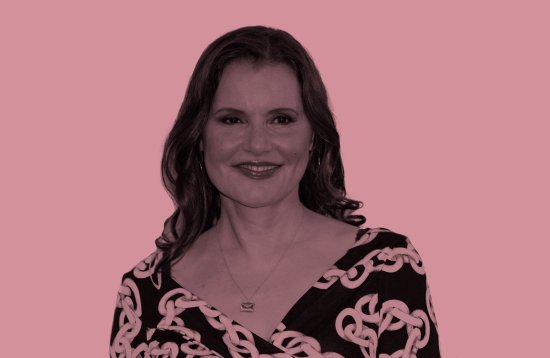
We're on the cusp of real change for women, but we need public pressure
In the not-too-distant past, many women in Hollywood, myself included, felt that we shouldn’t speak out about unfairness in the industry. We tried to put a better angle on it. We said things like “I’m just picky” when there weren’t enough parts for women or “he’s a more established star” when we thought about salary.
It’s a big relief not to pretend anymore.
As someone who has been working on raising awareness of the issue of diversity in Hollywood for years, it’s refreshing to see how many more people are talking about it today. My peers in the industry are doing a fantastic job of exposing unfairness and telling their stories—when Jennifer Lawrence recently penned an essay critiquing the wage gap, people listened.
[time-brightcove not-tgx=”true”]
So now could be the beginning of a good time for women in Hollywood. But we’re not there yet.
According to data we’ve compiled at my Institute on Gender in Media, the picture hasn’t changed much in the last seven decades. The ratio of male-to-female characters has stayed the same, and it’s not improving behind the scenes, either.
To make matter worse, every few years, we’re led to believe that something has happened that changes everything. I became aware of this phenomenon in the early 1990s after I starred in Thelma and Louise and A League of Their Own: Both films caused a stir, leading some to report that they marked significant shifts for women in Hollywood. We saw similar reactions after the first Sex in the City movie, Hunger Games and even Frozen.
But successful films featuring women haven’t translated into momentum for women in the industry overall. And if you can’t measure it, it hasn’t happened.
Here’s what we do know, according to data from my Institute on Gender in Media: For every one female speaking character, there are three male characters. Women only make up about 17% of the people shown in crowds in live action and animated movies. And just about 7% of directors, about 13% of writers, and about 20% of producers are female.
The data are particularly stunning for media created for children: Kids’ television has the worst ratio of female-to-male characters on TV, and there’s a profound amount of hyper-sexualization. For example, in G-rated animated movies, female characters wear the same amount of sexually revealing clothing as the characters in R-rated movies.
In other words, female characters are often one-dimensional, sidelined, stereotyped, hyper-sexualized—or not there at all. From the minute a child starts consuming popular culture, they’re exposed to the message that girls are less important than boys.
When I share this data with industry leaders, many react with shock. Writers and directors are often unaware of how lacking female characters are in the fictitious worlds they’re creating. Once they realize it, easy fixes, such as adding to the number of women seen in crowd scenes, seem obvious: As one studio head put it, “Guys,” (it was mostly guys in the room) “can we just go immediately to half?”
Another easy way to feature more women is to change the gender of the characters. Too often it seems that male characters are the default, and female characters are only written if there’s a specific reason. Male writers sometimes worry they don’t know how to write female characters, or that women viewers will judge them if they do, so they end up churning out the same beautiful, boring women.
I experienced this when I was the female lead in a comedy, and I noticed that the male parts seemed much funnier than mine. I mentioned this to the director, and he asked the writers to add in more jokes—but they had me saying the set-up line, and the guys delivering the punch line. I finally had to ask: “What if you just pretend that I’m the guy?”
We want to see messed-up, interesting, complex women. We should be writing female characters that are diverse. But in the meantime, it’s a start to take male characters and make them female.
I’m optimistic that we’re on the cusp of a big change for women in Hollywood. Today, when I’m leaving a studio, I’m not afraid to say: “Change the male parts to female and then cast me!”
Geena Davis, an Academy Award winning actor, is the founder of the Geena Davis Institute on Gender in Media and the co-founder of the Bentonville Film Festival, which champions women and diversity in media.
